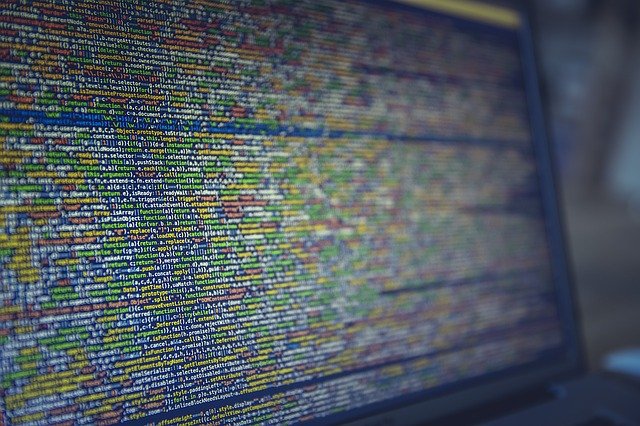So you just built a new pc, congratulations! But now that you have this beautiful new machine, how do you protect it from the big, bad world out there? There are a few things you can do to keep your pc safe, and we’ll explore them in this blog post. From installing an antivirus program to backing up your data regularly, follow these tips to keep your new pc protected.
Tips to protect your new computer
If you just built a new computer, congratulations! You’ve taken a big step towards improving your productivity and efficiency. But now that you have a new computer, it’s important to take some steps to protect it. Here are some tips to help you keep your new computer safe:
- Use antivirus software and keep it up to date. Antivirus software is crucial for protecting your computer from malware, which can damage or destroy your system. Make sure you install antivirus software on your new computer and keep it up to date with the latest virus definitions.
- Keep your operating system and software up to date. Software updates often include security fixes that can help protect your computer from attack. Be sure to set your operating system and all installed software to update automatically so you’ll always have the latest security patches.
- Use a firewall. A firewall helps protect your computer from unauthorized access by blocking incoming connections that could be malicious. If you’re using a broadband router, it likely includes a firewall feature that you can activate; otherwise, you can install third-party firewall software on your computer.
- Use caution when browsing the web and opening email attachments. The internet is full of threats like viruses, spyware, and phishing scams. Be careful what websites you visit and what email attachments you open, as they could potentially infect your computer with malware.
- Back up your data regularly. In case of a malware attack or hardware failure, it’s important to have a backup of your data. Be sure to back up your files to an external storage device or online service on a regular basis.
By following these tips, you can help keep your new computer safe from harm.
Why you need to protect your new computer?
No matter how well you built your new computer, it’s not immune to malware. In fact, even the best computers can be infected by malicious software if they’re not properly protected.
That’s why it’s important to have a good antivirus program installed on your new computer. A good antivirus program will help to protect your computer from malware, and it will also help to keep your personal information safe.
There are a lot of different antivirus programs available, so it’s important to choose one that’s right for you. You’ll want to consider things like price, features, and ease of use when you’re making your decision.
Once you’ve chosen an antivirus program, make sure that you install it properly and keep it up-to-date. This will help to ensure that your new computer is properly protected against all the latest threats.
How to keep your new computer safe?
Now that you have your new computer, it’s time to think about how to keep it safe. Here are some tips to get you started:
- Install a good antivirus program and keep it up to date. This is the best way to protect your computer from malware and other threats.
- Keep your operating system and software up to date. Security patches are released regularly to fix vulnerabilities in software. By keeping your software up to date, you can reduce the chances of your computer being hacked or infected with malware.
- Use a firewall. A firewall can help block malicious traffic from reaching your computer.
- Be cautious when browsing the web. Avoid clicking on links from unknown or untrustworthy sources. When in doubt, don’t click!
- Back up your data regularly. In case of a worst-case scenario, having a backup will ensure that you don’t lose important files or photos.
Antivirus software
There are a few things you can do to protect your new PC, but one of the most important is to install antivirus software. This will help to protect your computer from any malicious software that could be installed without your knowledge.
There are many different antivirus programs available, so it is important to choose one that is right for you. Some programs are free, while others require a subscription. There are also different levels of protection offered by different programs.
Once you have chosen an antivirus program, it is important to keep it up to date. Most programs will automatically update themselves, but you should check for updates manually on a regular basis. Antivirus software needs to be able to detect and remove new threats as they arise, so it is important that it is always up to date.
It is also important to run regular scans of your computer with your antivirus software. This will help to identify and remove any malicious software that may have been installed without your knowledge.
Firewall
A firewall is a hardware or software-based system that filters traffic between your computer and the internet. It can help protect your computer from malicious code or hackers trying to gain access to your system.
There are a few different types of firewalls, but the most common are network addressable firewalls. These firewalls have a static IP address and can be configured to allow or deny traffic from specific IP addresses or ranges of addresses.
Another type of firewall is a application-level gateway firewall. This type of firewall inspects each packet that comes into your system and looks at the application data that is being requested. If the application data is not recognized, the packet is dropped.
You can also use a combination of both types of firewalls for added protection. For example, you can use a network addressable firewall to block all traffic from known malicious IP addresses and then use an application-level gateway firewall to inspect packets from unknown IP addresses.
No matter which type of firewall you choose, make sure it is always up-to-date with the latest security patches. Hackers are constantly finding new ways to exploit systems, so it’s important to have a firewall that can adapt and protect your system against new threats.
Password protect your computer
In today’s world, it’s more important than ever to password protect your computer. With so many people working from home and using personal devices for work, it’s essential to take steps to protect your data. Here are a few tips for password protecting your computer:
- Use a strong password that is difficult to guess. A good rule of thumb is to use a mix of upper and lowercase letters, numbers, and special characters.
- Never reuse passwords. If you have multiple accounts, make sure to use different passwords for each one.
- Enable two-factor authentication whenever possible. This adds an extra layer of security by requiring you to enter a code from your phone or other device in addition to your password when logging in.
- Store your passwords in a secure location such as a password manager or encrypted file. This way if your computer is ever compromised, your passwords will be safe.
By following these tips, you can help ensure that your computer and data are safe from attackers.
Encrypt your data
When it comes to protecting your new PC, one of the best things you can do is encrypt your data. This will help to ensure that your personal information and files are safe in the event that your computer is lost or stolen.
There are a number of ways to encrypt your data, but one of the most effective is to use a tool like TrueCrypt. TrueCrypt is a free and open source encryption program that can be used to create an encrypted container on your hard drive. This container can then be used to store any sensitive files or data.
In order to use TrueCrypt, you’ll first need to download and install the program. Once it’s up and running, you’ll be able to create an encrypted container by following the simple wizard-based interface. Once your container is created, you can then add any files or data that you want to keep safe.
TrueCrypt is a very effective way to protect your data, but it’s important to remember that it’s not foolproof. If you forget your password or lose your encryption key, you won’t be able to access your files. So make sure you choose a strong password and keep a backup of your key in a safe place.
Regularly update your software
One of the best ways to protect your new PC is to regularly update your software. This includes your operating system, as well as any other programs you have installed. Keeping your software up-to-date helps close security holes that could be exploited by malware or hackers.
For your operating system, you should set it to automatically check for and install updates. For other programs, check their websites or settings periodically to see if there are any available updates. It’s also a good idea to enable auto-updates if possible.
Some programs may prompt you to restart your computer after updating. This is usually necessary in order for the updates to take effect. So make sure you save any work before proceeding with the restart.
Keep a clean machine
To keep your new computer running at its best, it’s important to keep the system clean. Just as you would dust off your old TV or computer, you need to do the same for your new one.
Your new system probably came with a can of compressed air. Use this to blow out any dust that might have gotten into the case during shipping and assembly. It’s also a good idea to keep a can on hand to use every few months to keep the dust bunnies at bay.
In addition to physical cleaning, it’s important to keep your computer tidy by maintaining your software and files. Keep your operating system and all your software up to date with the latest patches and security fixes. This will help prevent malicious software from taking over your system.
Also, be sure to regularly back up your important data files. Whether you use an external hard drive or cloud storage, backing up your data protects you in case of a hardware failure or other data loss disaster.
Conclusion
There are a few different ways to protect your new pc, but the best way is to install an antivirus program. This will help to protect your pc from any malicious software that could damage it or steal your personal information. Additionally, you should keep your pc updated with the latest security patches from Microsoft or other software companies. Finally, you should use a strong password for any accounts that you set up on your pc. By following these simple steps, you can help to keep your new pc safe and secure.









FIND US ON SOCIALS